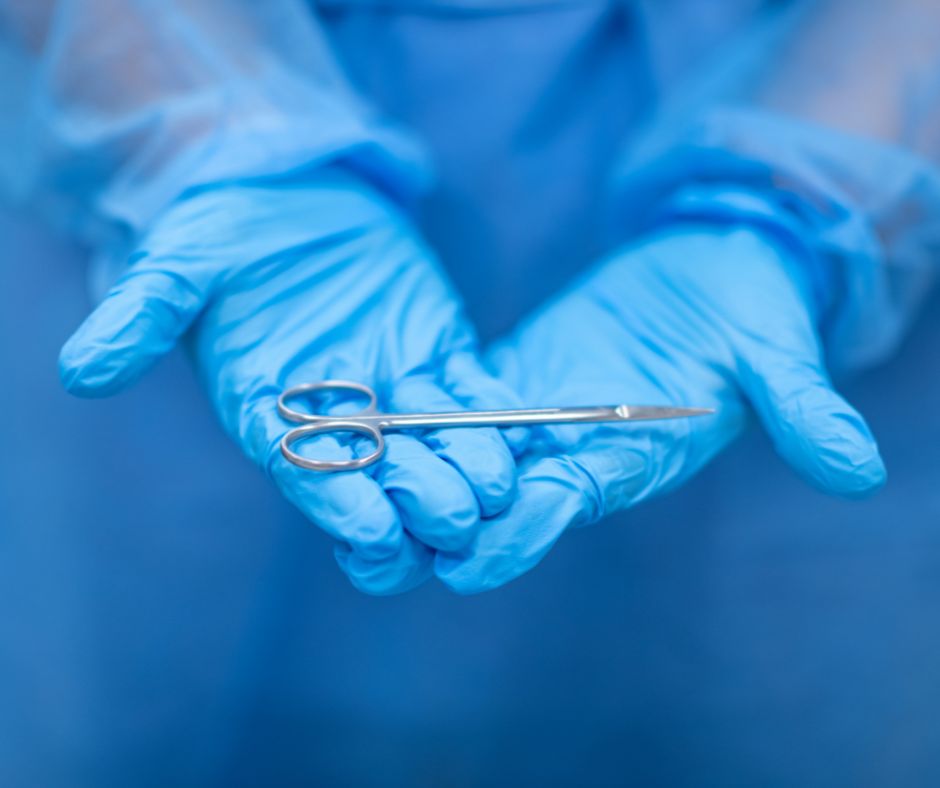By S.A. McCarthy
The Washington Stand
The world of “transgender medicine” was rocked in March with the publication of the WPATH files, a series of internal communications revealing that the World Professional Association of Transgender Health (WPATH) was not only aware of the “debilitating” and “potentially fatal” effects of gender transition procedures but continued promoting the practice to children anyway.
Now, further evidence is emerging that WPATH knew that it was promoting dangerous procedures to children. This week, The Daily Caller News Foundation obtained and published footage from WPATH training sessions, featuring doctors admitting that they know very little about the long-term effects of gender transition procedures, acknowledging the dangers of such procedures, and discussing how to promote transgenderism to children, among other things.
Hormone Drugs
In videos from September 2022, faculty members of WPATH’s Global Education Institute discussed the use of hormone drugs and their side effects. One individual admitted that there is little to no research on how hormone drugs may impact fertility, while another called the use of hormone drugs “off-brand,” meaning that they are used for “purposes other than that for which they were approved.” Canadian WPATH endocrinologist Dr. Marshall Dahl said, “Basically, not only are the medications off-label, the whole field’s off-label. But that’s all good.”
Dr. Joshua Safer, in discussing testosterone injections, admitted that there is “no data” to support increased testosterone prescription. “We were looking at some [of] these normal ranges and the point is there [is] no data for it. We’re looking at total testosterone with a lot of binding protein influence and to overthink it, it’s just going [to] torture the patient,” Safer said. WPATH’s latest edition of “Standards of Care” (SOC), which Safer helped to revise, warns that the use of hormone drugs can actually damage bone health. Safer was asked, during his presentation, about the “minimum testosterone dose that you have to have circulating for minimal bone health.” He replied, “And the answer is, great question.”
During another presentation, Dr. Michael Irwig warned about the potential dangers hormone drugs pose to fertility. “Effects on fertility, there’s going to be a lot of sessions on this, there’s still a lot that we don’t know about this topic,” Irwig admitted. “So, it is still possible for a lot of trans women to be fertile if they were to come off the regimens, but we can’t predict.” He added, “Now, in actuality, what we tell our patients [is] if you’re interested in having a biological child, the safest thing to do is just sperm bank. Now, put that away so that in the future if you need it.”
“There is so much we don’t know,” Irwig continued. “Safety and efficiency are the two most important things that we need to evaluate, and then so many of the medications, we just don’t know that.” He further noted that the “off-brand” nature of most hormone drugs may have potentially deadly side effects. “We really don’t want to do something just because they heard it on the internet and then ‘Oops, they died,’” he said. “You know, this is really bad and tragic.”
Dr. Asa Radix, president-elect of WPATH, echoed those concerns, specifically naming bicalutamide as a potentially fatal “off-brand” hormone drug. “It’s important that we talk to our clients about the lack of evidence before we start throwing medications at them that are potentially incredibly dangerous,” Radix said. “And maybe I’m the only one here that says that, but … I had a person die from this, and I will not be reaching out for it.”
Puberty Blockers
Although WPATH’s guidelines recommend prescribing puberty blockers, claiming that the drugs’ effects are “fully reversible,” WPATH experts said otherwise. Dr. Scott Leibowitz, a WPATH board member, said, “I think when we just say, ‘Oh, puberty blockers are just reversible and it’s a very noninvasive treatment,’ I would say it’s more invasive than often times the media makes it out to be or other people.” He added that when WPATH says that the effects of puberty blockers are reversible, it’s accompanied by “asterisks.” He explained, “One cannot be on puberty suppression endlessly. You get to a place where physiologically we need hormones.”
WPATH-certified endocrinologist Dr. Daniel Metzger admitted that the effect of puberty blockers on children’s brain development is unknown. “Obviously teenagers, their brains are changing,” he said. “They’re unwiring, they’re rewiring. And if we’ve started one kid unwiring and half rewiring, and then we changed their puberty the other way and we’re unwiring, people have been trying to figure out what this does for kids’ brains.”
Metzger also talked about the effect of puberty blockers on children’s fertility. “Kids have zero idea about their fertility,” he said. “Of course, it’s not in the mind of a 13-year-old or 15-year-old or even a 17-year-old because, you know, babies are icky, and you can just go to a store and adopt later on, right?” Metzger continued, “A little bit of what we know is from little girls who get cancer. They try to do whatever they can in a very fast fashion to preserve that girl’s fertility for down the road after she’s cured from her cancer.” He added, “I don’t think a lot is known about that still, for, say a 10-year-old assigned female. I don’t think we know.”
Mental Health
WPATH experts also explained that, contrary to transgender activist talking points, gender transition procedures do not alleviate mental health issues. “I always say to my patients now that we’re starting testosterone or estrogen, now you can finally have mental health problems,” Leibowitz said. “And it’s really important because then parents don’t approach the kids saying ‘How come you’re having mental health problems? We thought that that testosterone was going to be the answer?’”
Gail Knudson, the current co-chair of WPATH’s Global Education Institute, referred to a WPATH-funded study that she acknowledged did not support the claim that gender transition procedures alleviated mental health issues. “Does gender affirming hormone therapy decrease anxiety and depression?” Knudson asked. “This was a really interesting meta-analysis that they did, actually for the Standards of Care. And what they found was that when you looked at these different studies, that the strength of significance was low.” She continued, “Because we all know in this audience that … people have a better quality of life, depressive symptoms decrease, anxiety decreases. But what we’re trying to do for the researchers is really develop much more robust research protocols so it’s much more measurable.”
However, Leibowitz went on to call into question the need to base medicine on evidence. “Regardless of the evidence base, as I said, evidence is one part of this, but also there’s an ethical human rights component to treating people. We don’t rely on evidence for every single treatment we do in medicine,” he said. “We have to look at the whole thing. Ethics, human rights, justice for trans people.”
Knudson additionally claimed that “people with diagnoses on the schizophrenia spectrum” have the mental competency to consent to gender transition procedures, including genital mutilation surgery. She said:
“It’s a bit different though when people who are on the schizophrenia spectrum, whereas when they have a long-term illness in many cases, [after] following them for a long period of time and [becoming] well known to the team, they do have a capacity to consent for treatment, for hormones, for surgery, and, of course, [that] is depending case by case.”
Knudson also noted that psychotic symptoms often persist after gender transition procedures. “Consider admission to a psychiatric ward unit instead of a surgical ward for extra psychological assistance, post-operatively, after a person has had surgery and is stable,” Knudson suggested. “It’s actually putting a lot of wrap-around care in place.”
Dr. Chris Booth, a child and adolescent psychiatrist, went even further, arguing that psychotic symptoms should not prevent children from being placed on hormone drugs. “I’ve had trans masculine [biologically female] individuals who’ve come in with psychotic symptoms, and then the treating psychiatrist wants to stop their hormones,” he said, alluding to concerns that hormone drugs may worsen children’s mental health. “I try to explain to them that having them resume menses [menstruation] would likely be a much greater detriment than having them remain on their hormone therapy.”
Booth also condemned the “stigma” surrounding gender dysphoria, arguing that the disorder is not a disorder. “Suggesting that you need psychotherapy for being gender-diverse is implying that there is a mental disorder and there’s the implication about the gate-keeping that used to exist,” he said.
Meanwhile, Metzger admitted that the use of hormone drugs can actually make psychotic symptoms “a little bit worse.” He said, “I have had a few kids with schizophrenia who do notice that if they push their testosterone too much that it seems to them that it makes things a little bit worse.” He added, “So, the patients who have schizophrenia are doing well on their meds. So, they will sometimes moderate their dose a little bit just to keep the voices down or whatever the bad symptom is.”
Genital Mutilation Surgery
Canadian plastic surgeon Dr. Alex Laungani discussed phalloplasty, the manufacturing of artificial penises using tissue from other parts of the body, admitting that he tells children that genital mutilation surgery is an “adventure.” While describing the grisly complications associated with phalloplasties, Laungani said, “And young individuals, they’re ready to embark on the adventure. I tell them it’s going to be an adventure, we’re both together in there, because we have to get to your goals, but there’s going to be a few bumps along the way.” He added, “There could be delays because of complications — definitely there will be complications. Either it’s stenosis, fistulas, or partial necrosis, wound healing delays and stuff like that.”
Urinary stenosis is the narrowing of the urethra, fistula is the forming of a tunnel between the urethra and another part of the body, necrosis is the death of body tissue, and the healing of wounds can be delayed for a number of reasons, including necrosis, infection, or abnormal bacterial presence. Laungani also confessed that phalloplasty is often accompanied by a high rate of urology complications. “You see urology complications as much as 41%, but some series show up to 80%,” he said. “I mean, that’s a lot.”
Laungani further discussed how to convince insurance companies to cover the often-six-figure cost of phalloplasties, despite the fact that the procedures are essentially cosmetic, serving no real function. “So something that alters the appearance just for cosmetic purposes versus having a function. One would argue that the line is very thin between the two. And that’s the point we try to make when we have to appeal the insurance denials,” he explained. “I actually wrote a paper a few years ago, saying should we consider a cosmetic or reconstructive procedure, gender affirmation surgery. And of course, to me it should be considered reconstructive in the sense that it should be covered [by insurance].”
The Canadian plastic surgeon also talked about performing double mastectomies, the removal of both breasts, on teenage girls. “Probably the youngest kid I operated on was 14, had great parental support, had been miserable and again not going to school and not feeling good, and top surgery actually gave [her] [her] life back,” Laungani said. “I think, you know, if socially [she] can gain that, why wouldn’t I operate on [her] if [she’s] 14? It’s the right thing to do.” Laungani also claimed, without evidence, that post-surgical regret is rare, quipping that “haters will say differently, it doesn’t matter to us.”
Transgender Agenda
WPATH Mental Health Chair Dr. Ren Massey gave a presentation claiming that biological sex is not “binary.” He said, “In understanding gender identity, it was actually really helpful for me to do some research and understanding that actually, biology occurs beyond the binary as well.”
“This is what I call a ladder of assumptions. And that is that, at birth, we have assumed that we can determine there are people who are given a male gender marker,” Massey continued. “That’s language we use … and that is a thing that is done to all of us without our consent at birth, and then it is assumed that people who have been assigned that male gender marker are going to grow into individuals who have the gender identity of being a man.”
Massey then discussed the sociological basis for claims of transgenderism’s validity. “That’s language we use or designated male at birth, and that is a thing that is done to all of us without our consent at birth, and then it is assumed that people who have been assigned that male gender marker are going to grow into individuals who have the gender identity of being a man,” he contended.
During his presentation, Massey also discussed promoting transgenderism to children and parents. He explained, “Ladder of assumptions, we have now totally deconstructed it, right? And we see that all kinds of possible variations exist. So that’s what we want to embrace and that’s what we are often helping families and parents embrace also.”
Massey also encouraged his WPATH colleagues to “normalize” transgenderism and “preferred pronouns” in order to “create societal change.” He called on pro-transgender clinicians to become involved in schools. “I have both had to be the therapist and then go talk to the school and be an advocate, or do a talk to the whole community of a school,” he said. “So, I’m in multiple hats that we get to navigate, if we are advocating and helping and supporting our trans and gender diverse folks we are working with.”
Another WPATH psychologist, Dr. Wallace Wong, also advocated infiltrating schools with transgender ideology. “A lot of time we will facilitate changes,” he said. “It’s not unusual that you will go to the school with the parents together and educate the school what to do. A lot of the times, some schools they say, ‘We don’t know what to do.’ You say, ‘That doesn’t fly, I will teach you how to do.’” Wong laid special emphasis on promoting the use of “preferred pronouns.”
Biological male Paula Neira, program director of LGBTQ Equity & Education at Johns Hopkins Medicine, called on WPATH members to oppose conservative efforts to protect children from transgenderism. “Numerous states have either engaged in having litigation and legislation proposed or the government has taken actions that are targeting the LGBTQ+ community broadly, and then at least half of these bills are specifically targeting transgender people, particularly transgender youth,” he said. “The way that these bills are being played out is [attempting] to ban gender affirming care.” Neira called such legislation “the height of cynicism and hypocrisy.” He added, “Being defiant in the face of the enemy is not something that’s unfamiliar to me.”
Transgenderism Today
In March of this year, the organization Environmental Progress leaked internal files from WPATH that “revealed that the clinicians who shape how ‘gender medicine’ is regulated and practiced around the world consistently violate medical ethics and informed consent.” Shortly afterwards, the U.K. published the groundbreaking Cass Review, warning of the dangers of gender transition procedures for minors and the “remarkably weak evidence” of providing such procedures to children.
Both England and Scotland have halted prescribing hormone drugs or puberty blockers to minors. Despite all this, many states in the U.S. still allow gender transition procedures for children.
















